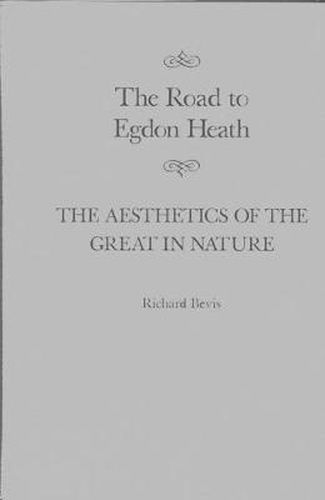Readings Newsletter
Become a Readings Member to make your shopping experience even easier.
Sign in or sign up for free!
You’re not far away from qualifying for FREE standard shipping within Australia
You’ve qualified for FREE standard shipping within Australia
The cart is loading…






Bevis examines a wide range of English, European, and North American texts, literary works as well as religious, scientific, and travel writing. He surveys the literature on mountain climbing, sea voyages, desert travel, and polar exploration, and its metaphorical uses in poetry and fiction. Relying on Addison’s term the Great rather than the sublime, he shows how works such as Darwin’s journals, Lyell’s studies in geology, and de Saussure’s books on the Alps helped form an outlook on nature that also found frequent literary expression. A wide-ranging, interdisciplinary work in the history of ideas, The Road to Egdon Heath traces the growth of an aesthetic sensibility that is now ubiquitous but which would have been incomprehensible prior to the Renaissance. This sensibility underlies not only much of modern literature but also our modern ideas about conservation, ecology, and environmentalism.
$9.00 standard shipping within Australia
FREE standard shipping within Australia for orders over $100.00
Express & International shipping calculated at checkout
Stock availability can be subject to change without notice. We recommend calling the shop or contacting our online team to check availability of low stock items. Please see our Shopping Online page for more details.
Bevis examines a wide range of English, European, and North American texts, literary works as well as religious, scientific, and travel writing. He surveys the literature on mountain climbing, sea voyages, desert travel, and polar exploration, and its metaphorical uses in poetry and fiction. Relying on Addison’s term the Great rather than the sublime, he shows how works such as Darwin’s journals, Lyell’s studies in geology, and de Saussure’s books on the Alps helped form an outlook on nature that also found frequent literary expression. A wide-ranging, interdisciplinary work in the history of ideas, The Road to Egdon Heath traces the growth of an aesthetic sensibility that is now ubiquitous but which would have been incomprehensible prior to the Renaissance. This sensibility underlies not only much of modern literature but also our modern ideas about conservation, ecology, and environmentalism.